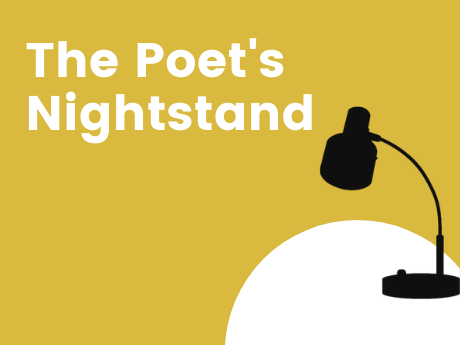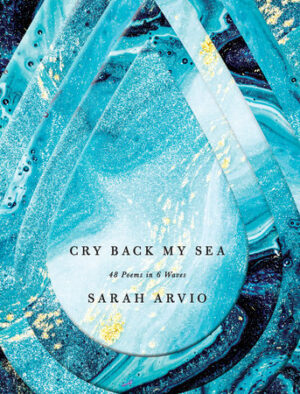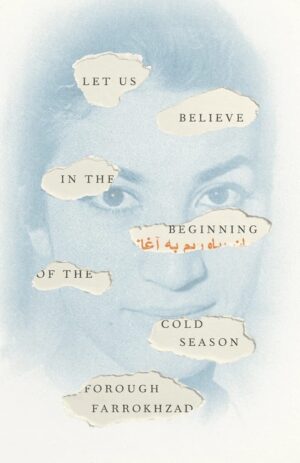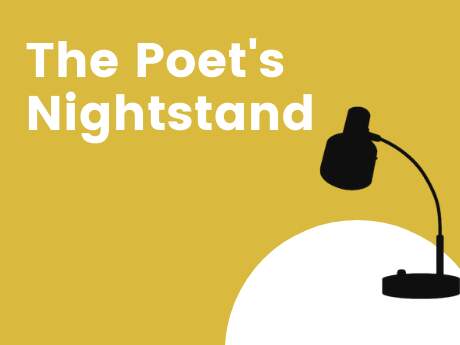The Poet’s Nightstand
The Poet’s Nightstand with Richie Hofmann


Earth Room
by Rachel Mannheimer
I’ve been hungry for Rachel Mannheimer’s debut collection since I first read a group of her poems several years ago. This book, selected by Louise Glück for the chic, new Changes Press, takes us all over the world—from upstate New York to rural Germany—as the poet explores the fragility of art and love and self. “Sculpture is most pleasing at a human scale,” one poem claims, and that feels exactly true of the poetry in this collection: all of it (the history of performance art, the vagaries of desire, global politics) is brought to the human scale of Mannheimer’s voice: an intimate travelogue of geographic and emotional locales. These unforgettable poems unfold in undramatic ways, thick with allusions to outrageous performances, but thinned by the speaker’s wry and matter-of-fact reportage. How exciting for a book of poems to feel like dance, diary, and theory all at the same time.
Purchase

Best Barbarian
by Roger Reeves
I just taught Roger Reeves’s “Fragment 107” to my poetry students at Stanford. The poem is a dark and beautiful response to Sappho’s “do I long for my virginity?” Like so many of Reeves’s poems, the speaker exists so forcefully in the present but also in another, distant world. His poems are dense and allusive, charting an intellectual project to extend the canon of American art and to make that canon feel present and alive to us. It’s been obvious since King Me appeared in 2013 that Reeves is one of the smartest poets of our generation. But I’ve been so struck reading Best Barbarian for the last couple weeks just how intense and emotional the effect of these poems can be. Contemplating this book, I find myself asking: How can poems so cerebral bring me to the verge of tears? How can lyrics so precisely designed feel so surprising and so real?
Purchase

Pleasure
by Angelo Nikolopoulos
Some books just feel made for you—and that’s how I felt reading Angelo Nikolopoulos’s second collection, Pleasure: a summer haunted by sex and death on a Greek island. There are the expected pleasures (cypresses, figs, sun, and sea) but also unexpected pleasures (Percy, an older British man who becomes the speaker’s chief paramour), even as the pains of loneliness and fear about a mother’s illness darken the edges of these perfect postcards. I love the subtle arc of these poems—the way they express narrative details with the intimacy of a diary entry, making every vulgar thing beautiful.
Purchase

Cry Back My Sea
by Sarah Arvio
Sarah Arvio’s newest book is a book of heartbreak. As the title of the collection suggests, these poems move with the crash and retreat of waves, dynamic and emotional, and they carry with them the salt and sting of seawater. As a reader, I was swept up in the tumult of these poems: erotic, precise, and devastating as they turn and turn back on themselves. As a writer, I wanted to put the book down and write—they so unlocked new worlds of idea and of feeling. Arvio’s poems urge me deeper into language—into its material—and remind me how fragile we are, everything is. Cry Back My Sea is so fresh and so original—I don’t anticipate I’ll ever be “finished” reading such a rich and forceful book.
Purchase

Let Us Believe in the Beginning of the Cold Season
by Forough Farrokhzad, translated by Elizabeth T. Gray, Jr.
I picked up this book in New York last week, and I have been obsessed with the stark and daring poems of Forough Farrokhzad. Born in Tehran in 1934, she is among Iran’s major literary figures. This volume from New Directions offers a selection of poems heavy with grief and desire, in crisp translations (and with a brief and fascinating introduction) by Elizabeth T. Gray, Jr., including the posthumous collection from which this book borrows its title, written before Farrokhzad’s tragic death in a car accident in 1967. Even in translation and more than a half-century after the poet’s death, these poems are bracing in their intimacy and power: “My body no longer fit the cocoon of my loneliness.” As I read, I wanted to underline every word.
Purchase


